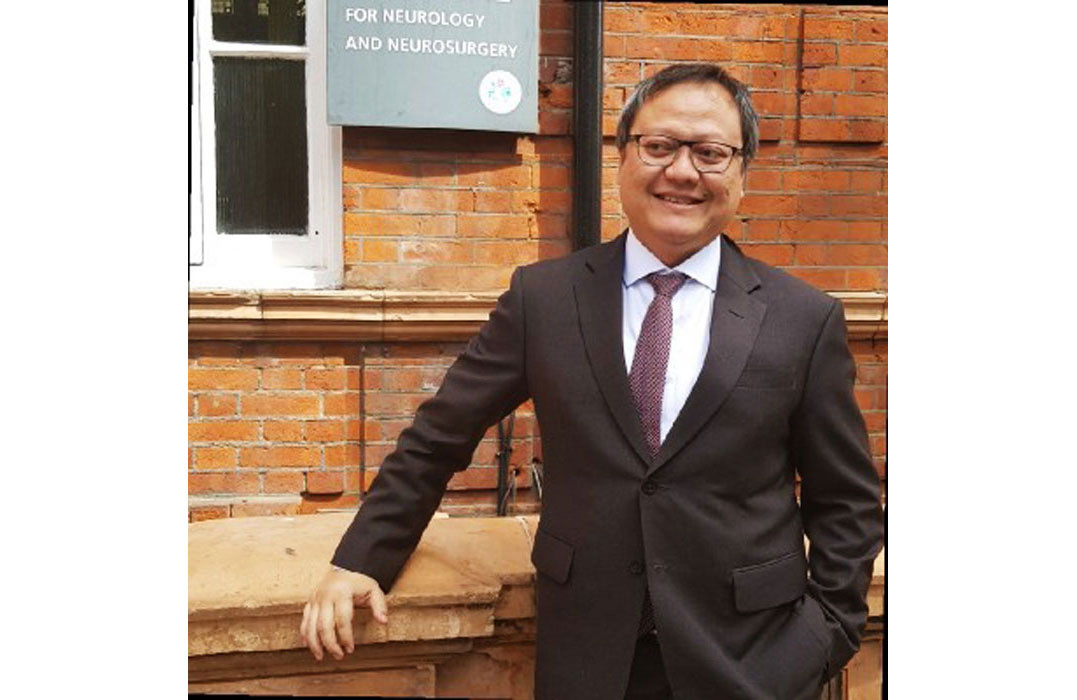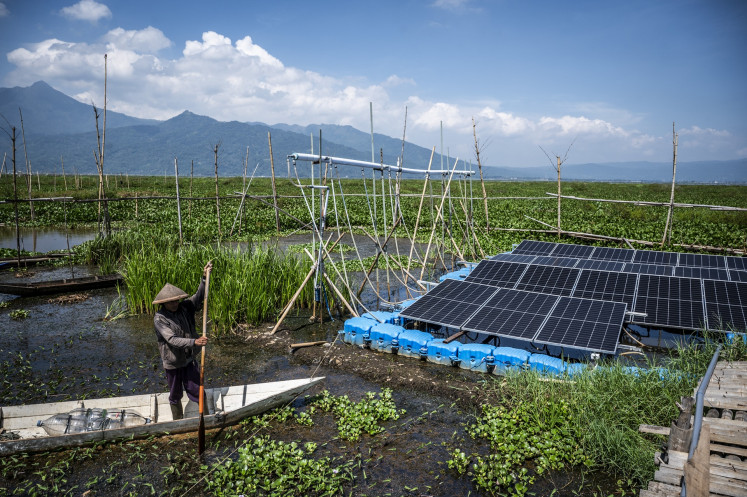Popular Reads
Top Results
Can't find what you're looking for?
View all search resultsPopular Reads
Top Results
Can't find what you're looking for?
View all search resultsTransforming businesses in the wake of the pandemic
Change text size
Gift Premium Articles
to Anyone
F
or businesses seeking to boost profitability as the global pandemic continues to cause market disruption in 2022, change management is key.
“With COVID-19 as the continuous challenge, it has been imperative to increase both performance and productivity and, in some cases, reduce costs,” said Dr Armand Hermawan CPA (Aust.), Director of Strategy and Execution for multinational telecommunication company PT. Indosat Ooredoo Hutchison, Tbk, who was Director of Strategy and Transformation for the leading Indonesian airport company.
“Managing cash flow, especially in an economic downturn, has also been essential to survival.”
Micro, small and medium enterprises, which account for 99 percent of all businesses and generate more than 60 percent of Indonesia's gross domestic product (GDP), have seen a decline in sales by more than 30 percent because of the pandemic, a recent study showed.
For large businesses, such as Indonesia’s fast-food companies, it is global supply chain disruptions that continue to cause havoc.
But formulating a transformation strategy, and executing effectively, could ensure a company was sustainable in the face of market threats, said Armand, a prominent business leader in Indonesia who has been involved in leading many multinational, and state-owned companies towards transformation.
“Strategy without execution is only a fantasy,” he said.
“Execution is about the discipline of getting jobs done.
“It needs persistency and commitment.”
With the IMF downgrading Indonesia's 2022 economic growth forecast to 5.6 per cent in 2022 from 5.9 per cent in its October report, and Omicron infections spiking, transformation remains as urgent as it has for the past two years.
Identifying a common goal, as well as the creativity present in a company, was the first step in creating a resilient business, said Armand.
“Most transformations start with clear and common objectives and it is these, properly communicated, that can help to ward off any resistance to change among staff or leaders.”
In the face of the current global crisis, he had seen the telecommunications industry learn how to respond the needs in a timely manner such as rapid demand for online learning and long-distance study, while those in hospitality had adapted to provide delivery of orders to survive.
For an Indonesian airport company, transformation had been about how to improve customer experience and safety for customers in order to reboot the travel industry as confidence slowly returns to the national and international market.
Moving through similar changes, business leaders needed to be present to support their teams at every level of innovation, while reinforcing the need for it, advised Armand.
“In reality, the process has to start with creating the urgency of change – what happens, for example, if there is no cash flow; and communicating that urgency to staff as well as engaging them in the process.
“You must have collaboration to succeed and you must create confidence.
“Once you formulate change strategy correctly and ensure adequate communication the change management process is smoother and easier to implement.”
A mechanism to monitor change was as essential as devising an effective strategy, he added.
“Each step in the process must have a measurement of success so that people see they are going down the right track, and every small victory must be celebrated as a win.”
For today’s leaders and future leaders, Armand said international accounting body CPA Australia provided members with support through transformation processes, as well as in seeing what type of successful outcome could be achieved and how this could reflect positively on financial statements.
This was achieved through advice on skills including strategic thinking and communication skills.
CPA Australia also supports digital knowledge with learnings on CPA Program subjects including how to manage big data and undertake data analytics to generate better customer experiences, he said.
As the pandemic sees a growing percentage of trade conducted online, government ministers have estimated that Indonesia’s digital economy is poised to grow to the size of approximately US$133 billion within the next five years.
In fact, realising its potential is seen as a key driver to unlock the nation’s economic development and recovery.
“Digitalisation supports cash flow because all customer experience can be supported by technology,” said Armand.
“Businesses can use data to analyse what the customer wants and needs and to know the behaviour of customers very accurately.
“If the customer enjoys their product, and is comfortable with it, that can assist in making them a market leader.”
Yet while digitalisation and technical advances will continue to reshape the marketplace, human capabilities cannot be replaced, he believed.
“Human skills, including empathy, are required to interact successfully with people including to drive sales.”
In staying relevant in a marketplace that will continue to shift, ongoing learning and professional development in areas such as critical thinking in a business environment, leadership, management and strategy were essential as a foundation for those who aspire to lead, said Armand.
CPA Australia’s integrated expert courses and online learning are available to members and non-members alike.
This means all employers are able to make use of courses such as Creating value through sustainability and Digital finance to upskill their staff and prepare their organisation for the inevitable changes ahead.
At the same time, the post-graduate CPA designation assists professionals to build a career based on exceptional finance and leadership skills developed with the assistance of a globally renowned organisation.
With more than 168,000 members working in 100 countries and regions across the world, CPA Australia also provides vital connection to a network of professionals who understand precisely how the pandemic has affected business and finances and the steps an organisation must take to not only survive but thrive.
While it is true that COVID-19 has placed unprecedented pressure on businesses and individuals to adapt to a volatile market, it is rare for real change to occur without external pressures, said Armand.
Professionals who want to discover how becoming a CPA can support their career goals, as well as their understanding of transformation and strategy, can join a free webinar.
CPA Australia also has a Member Pathway Agreement with the Indonesian Institute of Chartered Accountants that may assist you to gain the international designation.
If you are thinking about how to upskill your staff, contact the CPA team at +62 21 2964 5100 or id@cpaaustralia.com.au for a tailored solution.
This article is a collaboration with Global Media Solution










